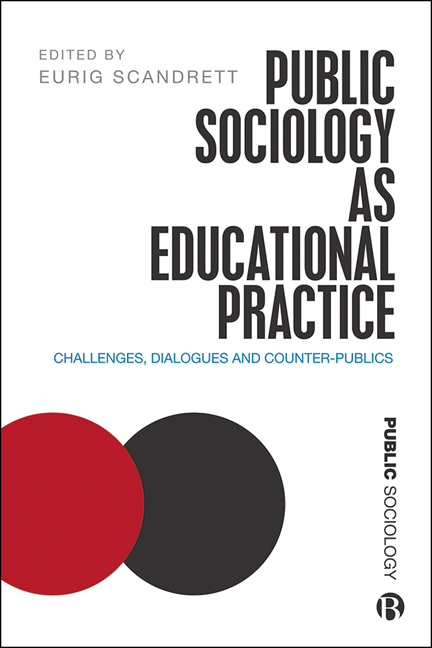I.4 - A Public Sociology for Post-Industrial Fife
Published online by Cambridge University Press: 02 March 2021
Summary
Introduction
Having been an associate member of the Workers’ Educational Association (WEA) from attending WEA courses when conducting research into the politicisation of Scottish national identity (Gilfillan, 2014), the WEA seemed an ideal public to partner with in light of Burawoy's (2005) call for sociologists to engage with the likes of church groups, the labour movement and the working class. When going to meet with the WEA education development manager for Fife (‘Maesie’) at her Lumphinnans office in March 2017, it seemed appropriate to park in Gagarin Way opposite the WEA office as this street name indicated the previous industrial era when this former ‘pit village’ had earned the local nickname ‘Little Moscow’ thanks to a Communist tradition strong enough to have streets named after heroes of the Soviet Union. However, in light of 1980s deindustrialisation and the flight of private capital from the central Fife corridor from Buckhaven and Methil in the east to Ballingry and Lochore in the west, Burawoy's question ‘are there any publics out there?’ (in Tamdgidi, 2008: 140) was a topic I wanted to explore with Maesie.
Paul: Does the WEA struggle for local publics?
Maesie: One of the biggest challenges for the WEA is the fact that we are still a very, very traditional organisation; still trying to work to fairly traditional values and aspirations. An yet society is movin on all the time. And so the models and the approaches that we used even 20 years ago are no really relevant any more. So one of the things that we’re having to do, and we absolutely sit doon an talk about this regularly, is how do we make ourselves more relevant to people in the way that people live and work and move around now, because we believe that the content of the education that we offer is still relevant.
Paul: What are the values of the WEA? Is it empowerment via education?
Maesie: Absolutely! We talk about ‘social purpose’ education; which means that anything we are delivering is about enabling people to think very, very critically about their situations. About the things that impact on their lives. So it's no just a case of comin an doing a creative writin class because that's something yer interested in.
- Type
- Chapter
- Information
- Public Sociology as Educational PracticeChallenges, Dialogues and Counter-Publics, pp. 65 - 78Publisher: Bristol University PressPrint publication year: 2020



